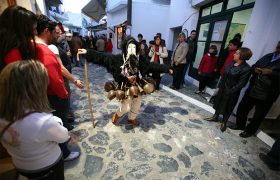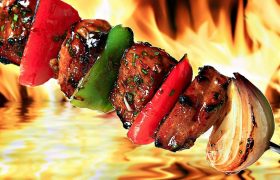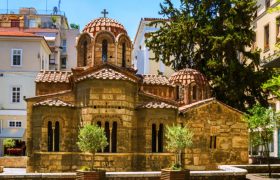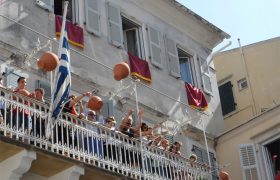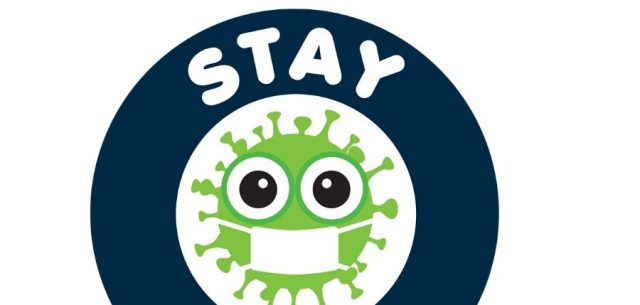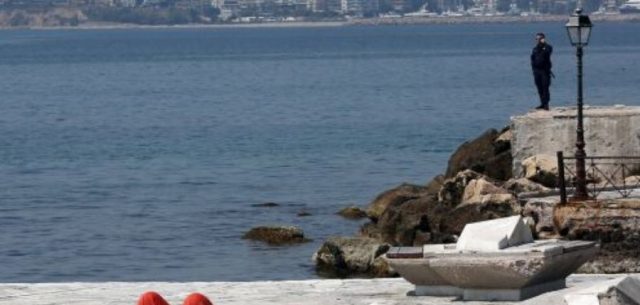Embracing the Stillness this Easter

As we approach an Easter-like-no-other, and our second month of isolation, Amanda Dardanis ponders how lockdown is changing us all.
Madonna passes the time by posting bizarre social distancing videos of herself bathing in rose petals. Ivanka Trump, by extolling the virtues of indoor camp-outs from her luxe lounge via Instagram.
With so many captive families around the world existing in a parallel reality – no school, no space, no income – it’s tone-deaf posts like these that may have finally knocked the celebrity virus on the head.

Extraordinary times call for a new strain of hero. In Greece, we’ve found ours in the unlikely figure of Professor Sotirios Tsiodras. As head of the National Institute of Allergy and Infectious Diseases, this bookish Harvard grad and father of seven has logged an 89 percent approval rating and become a household name to boot. In these tense, frightening days, his no-frills addresses to the nation quench our craving for authentic connection and reliable information. Tsiodras is frank, relatable and, above all, human.
Going off-script last Saturday to counter concern that Greece’s hardline Covid-19 strategy was placing undue importance on the elderly, at any cost, the 54-year-old disease expert’s voice broke noticeably. “These people (who) are our mothers and our fathers; our grandmothers and grandfathers. We cannot exist, or have an identity, without them.”
Likewise, our Prime Minister Kyriakos Mitsotakis is earning almost universal approval, both within Greece and abroad, for his grounded and decisive captaincy. When he went up against Christiane Amanpour on an extended CNN interview, streamed live on Facebook, the comments of gratitude and pride over his handling of the corona crisis racked up like high-speed pinball credits.
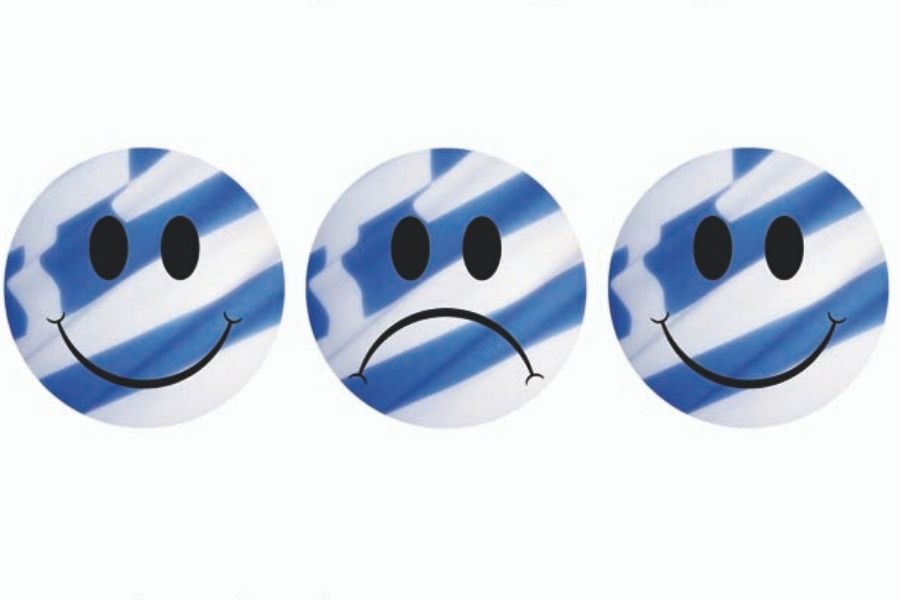 Athens has been my adopted home for 12 years. From the dawning days of the financial crisis, to the make or break referendums, the capital controls, and the world-wide rebukes for our reckless predicament that threatened to pull the entire European monetary union down the plughole with us. More recently, I’ve witnessed the exciting green shoots of Greece’s rebirth (so cruelly timed) and now this latest historic chapter. Like many, there’s the weary sense of “buckle up, here we go again”. (Although there’s comfort in the fact that this time, we’re not alone.) Comfort too in the knowledge that we’re not the bad guys again, either.I feel like a proud parent every time Greece is held up as an international model for early response; or its people as a benchmark for solidarity, grit and stoic compliance. Equally, I’ve shivered with schadenfreude at the countries whose citizens have traded blows over toilet paper; at the public figures who should’ve known better (like Scotland’s chief medical officer who resigned this week after breaking her own advice to make two trips to her summer home during coronavirus lockdown).
Athens has been my adopted home for 12 years. From the dawning days of the financial crisis, to the make or break referendums, the capital controls, and the world-wide rebukes for our reckless predicament that threatened to pull the entire European monetary union down the plughole with us. More recently, I’ve witnessed the exciting green shoots of Greece’s rebirth (so cruelly timed) and now this latest historic chapter. Like many, there’s the weary sense of “buckle up, here we go again”. (Although there’s comfort in the fact that this time, we’re not alone.) Comfort too in the knowledge that we’re not the bad guys again, either.I feel like a proud parent every time Greece is held up as an international model for early response; or its people as a benchmark for solidarity, grit and stoic compliance. Equally, I’ve shivered with schadenfreude at the countries whose citizens have traded blows over toilet paper; at the public figures who should’ve known better (like Scotland’s chief medical officer who resigned this week after breaking her own advice to make two trips to her summer home during coronavirus lockdown).
The last time Brand Greece scored this highly on the world stage was probably the 2004 Athens Olympics, or perhaps, that late October day in 1940 when Metaxas sent Mussolini packing – and I pray this stands us in good stead when we all finally return to the airplanes and the ferries. There’s absolutely no doubt in my mind that our impressively low infection and death rates, compared to other EU member states of similar size, boils down to the unwavering resolve of the Greek government and its people. Without them, hundreds more lives would likely have been lost by now.
Next weekend, we’ll face our biggest test of faith yet. With lockdown extended to April 27, millions of Greeks will be called upon to resist the compulsion to travel to their family homes to celebrate Easter with loved ones. Millions will experience the ache of meals not shared, hugs not exchanged, lambades not lit.
For those facing financial hardship, it will be a sombre time of reflection and restraint.All our lives have shrunk dramatically over the past month and with them, our certainty about our place in the natural universe. Through this pandemic, Nature has taught us – yet again – how small we really are.
As we enter our fourth week of social isolation, our early adrenaline rush has ebbed. We’re done with the spring cleaning; bored of baking. It’s tempting at this juncture to lament the lost opportunities. There are the things I wish I’d done when I had the chance. Spring swims and Sunday picnics. Aimless downtown strolls and explorations of new modern art museums. A haircut.
But perhaps, it’s more useful to acknowledge our smallness; look outwards and away from ourselves. In these mandated moments of stillness, I’ve discovered that peace can be found in facing the melancholy head on, rather than trying to evade it through mindless Tiger King binges or tumbling down the Reddit rabbit hole. The Japanese, who’ve just declared their own state of emergency, have a perfect word for it apparently. Yugen. Loosely translated, it means “a profound, mysterious sense of the beauty of the universe … and the sad beauty of human suffering”.
I learned this today within the pages of the perfectly-timed new release I’m now leaning into. Called Phosphorescence: On awe, wonder and the things that sustain you when the world goes dark, the book was written for a pre-corona world. Even so, it hasn’t so much tapped the global zeitgeist as crash landed into it. A poetic and deeply moving work, its author Julia Baird throws light on how to sustain internal happiness amid the most challenging times. In it, she cites ways that we might all capture the intense tranquillity of Yugen. Even throughout this Easter-like-no-other:
To watch the sun sink behind a flower-clad hill.
To wander on in a huge forest without thought of return.
To stand upon the shore and gaze after a boat that disappears behind distant islands.
Have a safe and soulful Easter as we all look ahead, together, to a brighter one next year.

